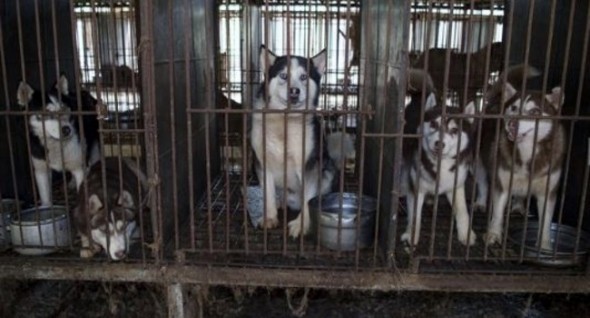
Roughly 200 dogs have been liberated from a farm in Wonju, South Korea, courtesy of the Humane Society International, and all should be able to find homes in the United States. The dogs were awaiting slaughter at the time, slated to become meat for human consumption, when HSI stepped in.
“It’s a dying business,” the farm’s owner Gong In-Young said in a piece at Phys.org. “In the past, people ate dogs because there was nothing else to eat but nowadays, young people don’t have to eat it,” he said. “It’s becoming something weird for people.”
The dogs — huskies, rotties, retrievers and other breeds among them — were bred for consumption. The piece asserts that between 1.5 and 2.5 million dogs are consumed in South Korea annually, but the farms are in decline. This is the fifth and largest operation to be shuttered by HSI. Gong expressed relief at its closing.

Farmers can received up to $60,000 in exchange for shutting down their operation. The money is often used to start new businesses, farming fruit or vegetables instead of animals. HSI campaign manager Andrew Plumbly said that the rescues and farm closings raise awareness about the farms’ cruelty. They hope to “initiate a conversation with South Korean policymakers.”
The Patch reported that 120 of the dogs are receiving medical care at St. Hubert’s Animal Shelter in Madison, N.J. The entire group is expected to be put up for adoption at shelters throughout northeastern U.S. and Canada.
